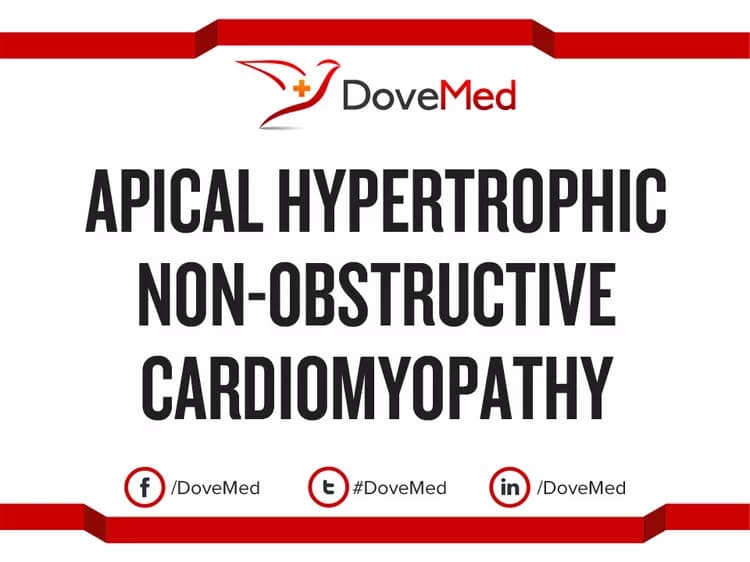The topic Apical Hypertrophic Non-Obstructive Cardiomyopathy you are seeking is a synonym, or alternative name, or is closely related to the medical condition Hypertrophic Non-Obstructive Cardiomyopathy.
Quick Summary:
- Hypertrophic Non-Obstructive Cardiomyopathy (HNCM) is a subtype of hypertrophic cardiomyopathy, which is a condition affecting the heart muscle
- The term “hypertrophic” means enlargement of cells, which, in this condition, leads to a thickening of the heart muscle. The thickening can occur in the ventricle walls and/or in the septum (wall that divides the chambers of heart)
- The thickening of the muscles leads to their stiffening; but, there is no obstruction to blood flow in HNCM. However, the function of the ventricle can still be compromised, and the heart’s pumping of blood affected
- Hypertrophic Non-Obstructive Cardiomyopathy can either be hereditary, or develop spontaneously. Some underlying medical conditions, such as thyroid disease, diabetes, and obesity, may contribute towards HNCM development. The onset can occur at any age, but typically, the onset of symptoms is during adulthood (in the 30s)
- Having a family history of cardiomyopathy is a definite risk factor for developing this condition. Additional risk factors may include high blood pressure, diabetes, and thyroid disease. The exact cause of the non-inherited type is not known; but, it may be associated with spontaneous mutations
- Mutations in several genes (MYH7, MYBPC3, TNNT2, and TNNI3 genes) cause the inherited form of hypertrophic cardiomyopathy. The pattern of inheritance is autosomal dominant, in which a single copy of the defective gene in each cell of an individual is sufficient to cause the condition
- The symptoms of Hypertrophic Non-Obstructive Cardiomyopathy may include episodes of shortness of breath, chest pain and fainting, typically during and after exercise. Additionally, there could be rapid heartbeats and fatigue
- The diagnosis of Hypertrophic Non-Obstructive Cardiomyopathy involves a thorough physical examination, symptom assessment, evaluation of family medical history, echocardiography (ECG), electrocardiography (EKG), stress test, imaging studies, and coronary catheterization. If required, a biopsy of the heart muscle may be ordered
- HNCM can potentially evolve into hypertrophic obstructive cardiomyopathy, leading to blood flow obstruction. Some other complications may include backflow of blood into the heart (heart valve regurgitation), aberrant heartbeats (arrhythmia), sudden cardiac arrest, and dilated cardiomyopathy
- Hypertrophic Non-Obstructive Cardiomyopathy may be treated with lifestyle changes, medications, non-surgical procedures, and surgical implants, depending on the severity of the condition. With early diagnosis and prompt treatment, the prognosis is generally good. However, in some individuals, a cardiac arrest may the first presentation, which can even be fatal
- Currently, there are no guidelines or methods available to prevent inherited forms of hypertrophic cardiomyopathy. Nevertheless, bringing about certain lifestyle changes and treating underlying medical conditions may help avoid or reduce severity of the symptoms
Please find comprehensive information on Hypertrophic Non-Obstructive Cardiomyopathy regarding definition, distribution, risk factors, causes, signs & symptoms, diagnosis, complications, treatment, prevention, prognosis, and additional useful information HERE.
Related Articles
Test Your Knowledge
Asked by users
Related Centers
Related Specialties
Related Physicians
Related Procedures
Related Resources
Join DoveHubs
and connect with fellow professionals


0 Comments
Please log in to post a comment.